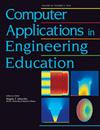Impact of Artificial Intelligence Technology on Students' Computational and Reflective Thinking in a Computer Programming Course
Abstract
This study examined impact of artificial intelligent technology on computational and reflective thinking skills development in a computer programming course. With intact classes and a nonequivalent pretest-posttest group, the study adopted a quasi-experimental research design. Hundred and twenty second-year students studying computer science education and enrolled in computer programming courses (COS 201 and COS 202) at six universities in southeast Nigeria make up the study population. The study sample comprises of 75 females and 45 males' students. Findings showed that students worked collaboratively with aid of artificial intelligence technology to develop critical thinking skills, algorithm skills and problem-solving skills among others which are components of computational thinking. Also, students' academic achievement was seen to be significantly improved in programming knowledge and skills, and students' reflective thinking skills were also developed as a result of the intervention. The findings show that the use of problem-based learning experience is introspected with artificial intelligence technology is supported by the use of online learning platform is crucial in the development of CT skills. This study recommends that both context-based learning and problem-based learning introspecting with artificial intelligence technology which are innovative pedagogy enhance the development of CT independently but differ in specific domains.

 求助内容:
求助内容: 应助结果提醒方式:
应助结果提醒方式:


